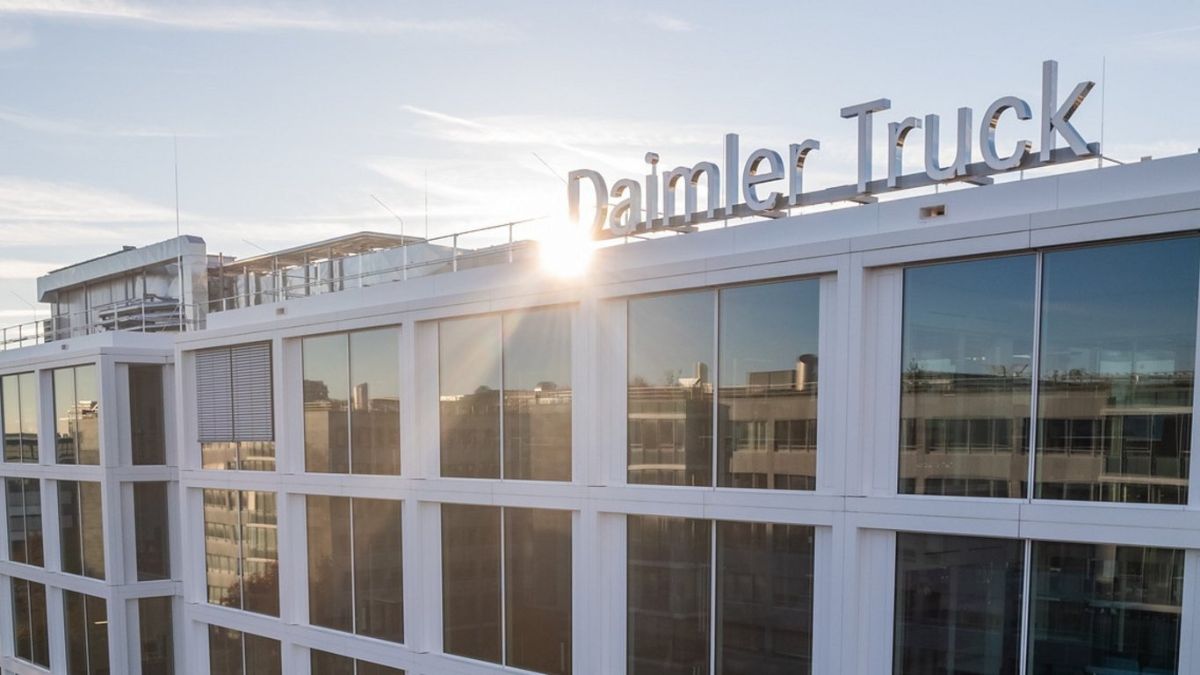
Three weeks after revealing its 2024 edition of heavy-duty trucks, Daimler India Commercial Vehicles (DICV) has set its sights on a new frontier: electric vehicles. The company announced its plans to enter India’s light-duty truck market with the all-electric eCanter, scheduled to launch within the next 6 to 12 months.
This marks DICV’s official foray into the EV market, where it will face stiff competition from Tata Motors and Ashok Leyland, two giants in India’s automotive sector.
A New Category in Light-Duty Trucks
The eCanter, with a weight range between 4 to 7.5 tonnes, represents a significant shift in the commercial vehicle (CV) space. DICV is not just introducing a vehicle, but aims to create a new category in the light-duty truck segment, with plans to indigenize production at its Orgadam facility in Chennai.
“The launch of the all-electric eCanter in India, within the next 6 to 12 months, is the first step in our long-term strategy to decarbonize our entire product portfolio,” said Satyakam Arya, Managing Director & CEO of Daimler India.
This initiative aligns with global trends towards CO2-neutral propulsion technologies, although Arya emphasized that diesel ICE and electric vehicles will co-exist in India for the foreseeable future. The challenge lies not only in product development but also in addressing external factors such as infrastructure and cost parity.
Key Challenges in EV Adoption
While Daimler India has made significant strides in the development of the eCanter, its success hinges on several factors. These include:
| Challenge | Details |
|---|---|
| Charging Infrastructure | The availability of robust charging stations across the country is crucial for EV adoption. |
| Cost Parity | Achieving cost parity between EVs and diesel trucks remains a significant hurdle. |
| Green Energy | The availability of sustainable, green energy will determine the success of these vehicles. |
| Consumer Acceptance | Convincing customers to adopt CO2-neutral technologies is essential for long-term success. |
eCanter: The Global Success Story
The eCanter is not a new vehicle for Daimler. The battery-electric platform originated in Japan, with the first generation of the eCanter rolling out in 2017. Since then, the vehicle has been launched in over 100 countries, including key markets like Europe and Asia-Pacific.
Daimler’s focus in India, however, is to ensure customer acceptance and service excellence before fully scaling the rollout. The vehicle is undergoing advanced trials and is expected to be a game-changer in the Indian market, given its potential to meet various commercial needs, from construction to long-haul freight.
MUST READ: Daimler India Commercial Vehicles (DICV) Teams Up with Bajaj Finance
Future of Propulsion Technologies
While the eCanter is leading Daimler’s electric vehicle push, the company is also actively exploring other clean energy technologies. Hydrogen fuel cell technology is already being developed in collaboration with an Indian conglomerate, showcasing Daimler’s commitment to the future of sustainable mobility.
“We will primarily commit to battery-electric and hydrogen-based propulsion technologies across our future product portfolio, in a phased manner,” added Arya.
Daimler India also hinted at introducing a diverse range of trucks for long-haul, mining, and RMC applications in the near future. The company’s future roadmap focuses on electric and hydrogen-based vehicles, rather than LNG, which it sees as a tactical solution rather than a long-term one.
Policy Support and Market Environment
India’s commercial vehicle market is poised for transformation, but as Arya highlighted, government policy and market conditions will play a pivotal role. He called for a conducive policy framework that supports the economic viability of CO2-neutral vehicles.
“Successful adoption of CO2-neutral vehicles is possible if there is wide consumer acceptance about changes in the equations of total cost of ownership.”
This statement underscores Daimler’s focus on making sustainable mobility solutions feasible and attractive for customers in India, a market that is on its way to becoming one of the top five commercial vehicle markets globally.
Conclusion
With the upcoming launch of the eCanter, Daimler India is taking a significant step toward the future of commercial transportation in India.
The company’s long-term vision includes electrification and hydrogen fuel cell technology, promising a cleaner, more sustainable future for India’s commercial vehicle sector.
Disclaimer
The information in this article is based on the latest updates from Daimler India and current market trends as of today. All facts and figures are verified for accuracy. Please check official sources for any future updates.

